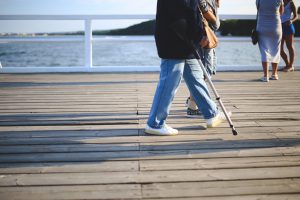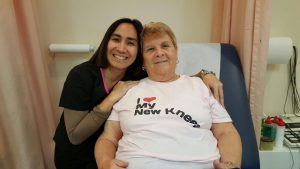As one enters their golden years, they start to experience and see the world from a different perspective. Part of this is because their minds have gained wisdom over the years, but part of this could also be because of the physical changes in their body. Here are 5 ways your body changes as you age over 60 years of age.
Hearing Loss
One of the few senses that do change dramatically as we age is our sense of hearing. Age-related hearing loss happens because of degenerative changes in our eardrums and other hearing nerves in our ear structure. More than 45% of people over 60 have some degree of hearing loss and their ability to distinguish tones vary too. Should you not get your hearing checked on, it could result in an inconvenience for the people around you and affect your quality of life.
Decrease in Bone Density
While you may think that your muscles are the only thing that is deteriorating as you age, you have to consider your bone density too. It may seem unlikely, but aging and bone health are inversely proportionate, and the loss of bone density is a real thing. A simple fall could result in fractures in your bones and joints, while weak cartilage could lead to pain in your joints.
Weaker Heart
Now as your muscles weaken, you have to keep in mind that your heart too is a muscle. This means that if you don’t perform cardiovascular activities regularly after age 60, you can expect your heart to become weaker. What this means is that the amount of blood being pumped around your body may become lower in volume, leading to symptoms like fatigue and brain fog.
Decrease in Flexibility
Most importantly, flexibility in one’s body is at risk after the age of 60 as our joints and muscles become stiffer than ever. Exercising regularly does not mean that your flexibility will improve because flexibility is not related to strong muscles. As such, it is very important to train your mobility as you age by stretching regularly on top of exercising.
Lower Immunity
A lower immunity is to be expected when we age, and it will become even lower once we reach the 60-year mark. This is the reason why there are so many elderlies that seem to get seriously sick despite contracting a simple virus such as the common flu. On top of that, this means that our ability to recover from physical injuries will also take longer as our central nervous system, immunity and bodily functions will all be operating at a lower capacity.



